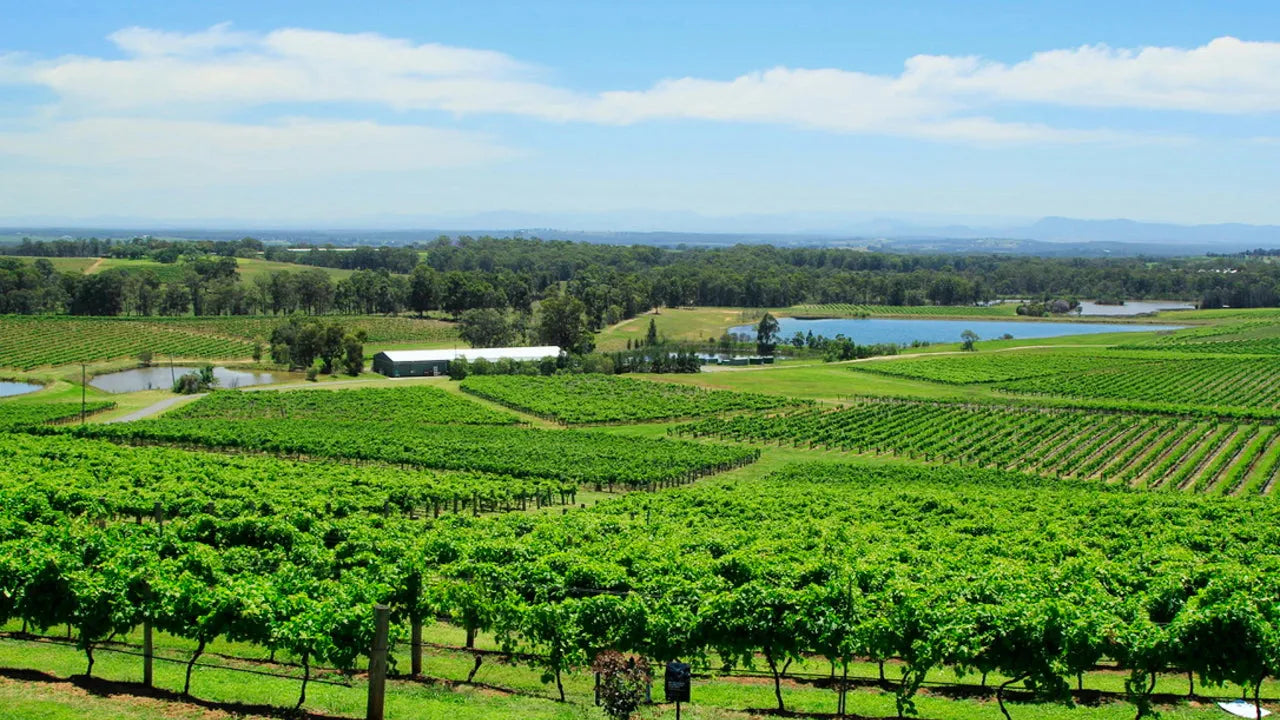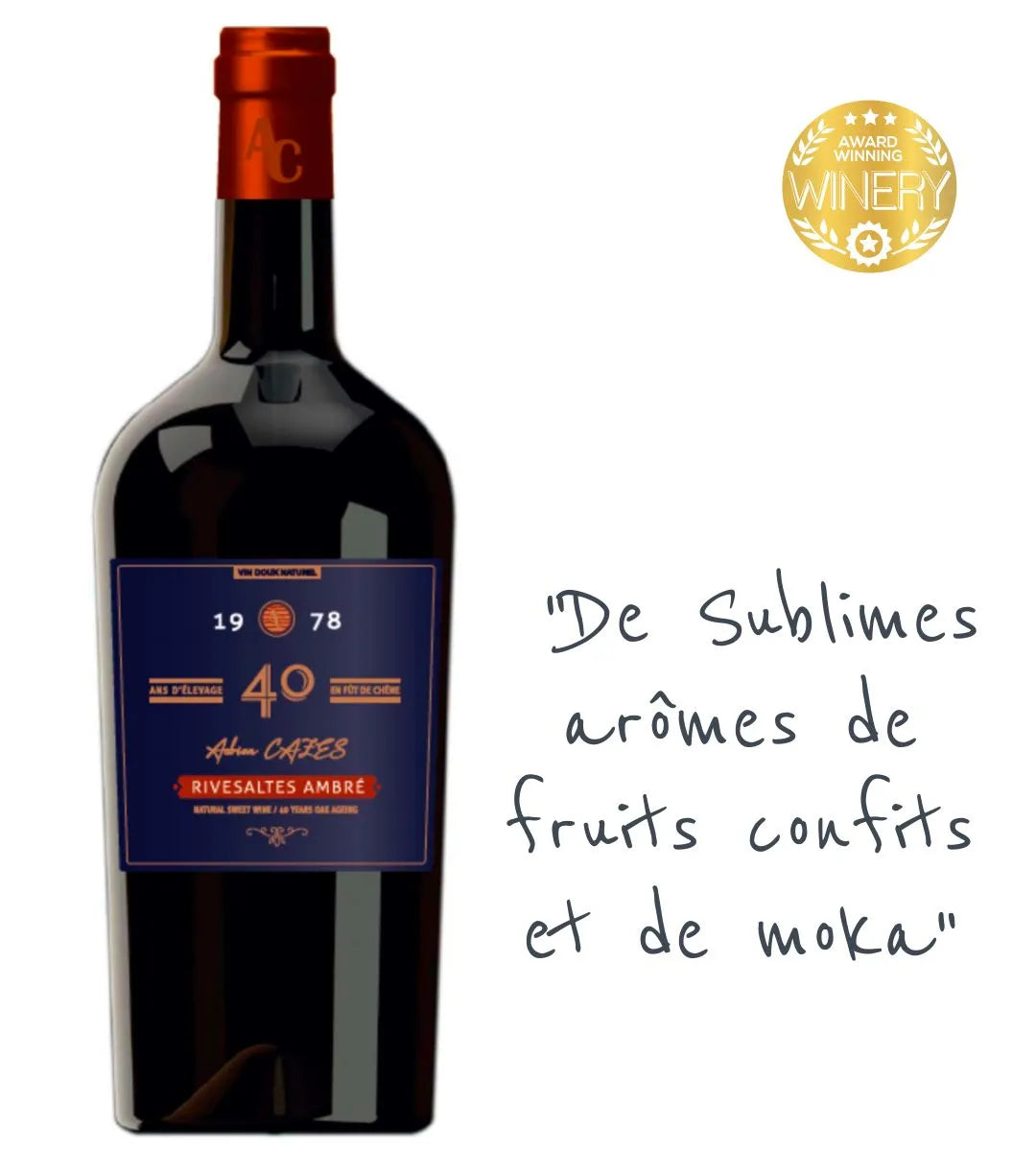
Macabeu
Macabeu, a white grape variety originally from Spain, produces light wines with aromas of pineapple, honey and anise. Dry, fruity and low in alcohol, it is perfect as an aperitif or with Mediterranean dishes.
At Vinodelice, we offer you a selection of Macabeu…

Rivesaltes AOP Languedoc-Roussillon, France
Macabeu
Macabeu is that discreet white grape that secretly makes some of the most refreshing wines of southern Europe. Known as Viura in Spain, this cross-border grape offers a surprising range – from sparkling Cavas to amber Rivesaltes, via characterful dry whites.
At Vinodelice, we are fascinated by this variety that knows how to be alternately lively and complex, young and vinous. Let’s discover this chameleon grape that deserves much more than a supporting role.
Origins
Macabeu draws its roots from the fertile Ebro Valley, between Catalonia and Aragon. Genetic analyses revealed its lineage: a natural cross between the Gibi and false Brustiano varieties. Its expansion coincides with the reconstruction of the European vineyard after the phylloxera crisis at the end of the 19th century.
In Spain, it quickly became the dominant white grape of the north, adopting the name Viura in Rioja. In France, it settled permanently in Roussillon, where it contributes to great sweet natural wines while also producing surprising dry whites.
This vigorous and productive grape has adapted to various terroirs, from the limestone hillsides of Catalonia to the schist soils of the Corbières, developing everywhere that unique aromatic signature that sets it apart.
The Great Expressions of Macabeu Around the World and Their Characteristics
The Wines of Spain: The Homeland
In its Catalan cradle, Macabeu reveals all its complexity. It is the cornerstone of Cavas, bringing freshness and structure to blends. In Rioja, under the name Viura, it gives elegant dry whites with notes of white fruits and almond, sometimes aged in barrels for more roundness.
The most remarkable versions come from old vines in Priorat or Terra Alta, where the grape develops exceptional concentration while retaining its characteristic freshness.
The Wines of France: The Land of Adoption
In Languedoc-Roussillon, Macabeu excels in three distinct styles:
– Lively and mineral dry whites from Corbières
– Sparklings from Blanquette de Limoux
– Sweet natural wines from Rivesaltes and Maury with roasted aromas
The best French expressions often come from old bush-trained vines, producing wines with astonishing aromatic depth.
Universal Signature
Whether from the Catalan hills or the Roussillon slopes, Macabeu retains that unmistakable identity: a pale yellow colour with green highlights, a delicate nose blending pineapple, anise and gingerbread, and a palate that is both round and refreshing. Its moderate alcohol content (11.5 to 13.5%) makes it a highly drinkable wine.
The Price of Macabeu
Macabeu offers one of the best quality-price ratios among Mediterranean white grapes. Young and fruity versions are available from €8–12, like some Cavas or dry whites from Languedoc.
Between €15 and €25, one already finds wines of great complexity, notably from old Catalan vines or young Rivesaltes. Exceptional cuvées, such as vintage Rivesaltes or terroir-driven dry whites, can reach €40–60 while remaining very affordable for their quality.
This accessibility makes Macabeu an ideal grape for exploring the diversity of Mediterranean wines without breaking the bank. Whether as a thirst-quenching wine or a contemplative cuvée, it always surprises with its outstanding quality-to-price ratio.
Food and Wine Pairings with Macabeu
Macabeu’s versatility makes it an ideal companion for Mediterranean cuisine. Serve young and sparkling versions well chilled (6–10°C), dry whites between 10–12°C, and sweet natural wines slightly less chilled (12–14°C) to reveal all their complexity.
Its young and lively versions pair wonderfully with seafood and grilled fish, while more structured cuvées go well with poultry in sauce or risottos. Sparkling wines are perfect as an aperitif, and sweet natural wines create sublime harmonies with foie gras or desserts. For a terroir-based pairing, try a dry Macabeu with a seafood paella – the alchemy is perfect.
To find out more, you can consult our list of grape varieties!





